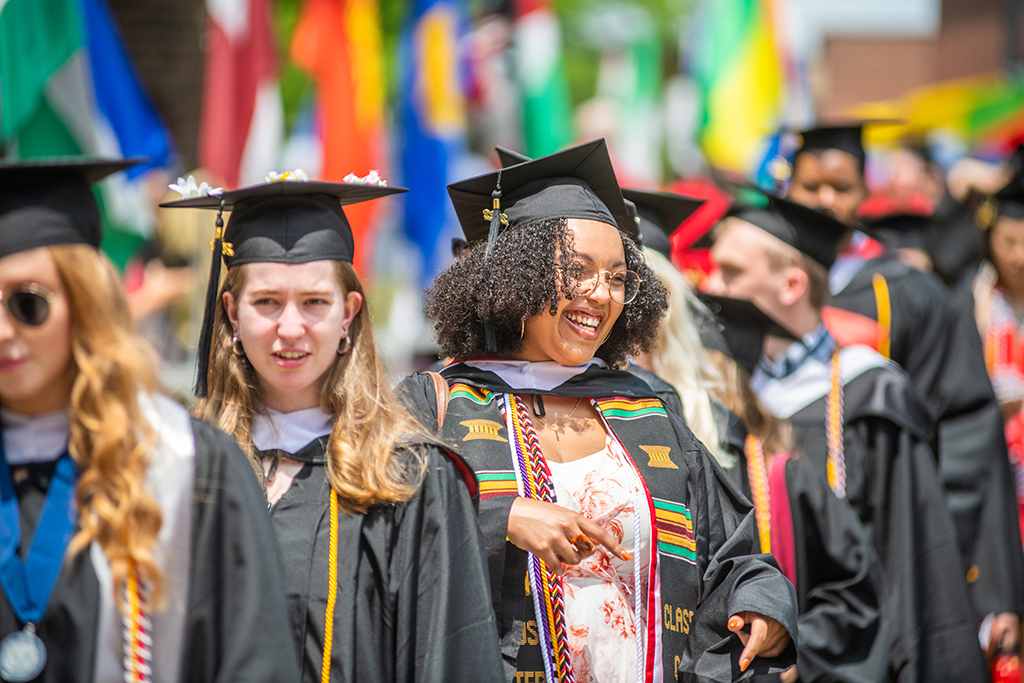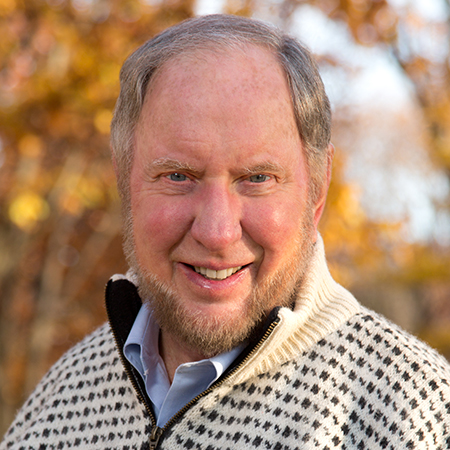Commencement speaker: Challenge facing this year’s graduates echoes an earlier time in America

Imagine an America that is socially fragmented and politically polarized, with little, if any, cross-party collaboration. Economic inequality means the gap between rich and poor seems insurmountable. Americans don’t trust their neighbors, and are in fact more concerned about themselves than their communities.
Sound familiar?
Welcome to America, 1900.
Robert Putnam, Malkin Professor of Public Policy at the Harvard University John F. Kennedy School of Government, is co-author of “The Upswing: How America Came Together a Century Ago and How We Can Do It Again,” and will deliver the address at Clark University’s 119th Commencement on May 21. He says this year’s graduates are in a situation similar to their early 20th-century counterparts.

“Kids graduating from college today face an America that is very polarized, socially isolated, unequal, and self-centered — just like the world students graduated into in the early 1900s,” Putnam said in a recent interview. “And those kids turned it around.”
In “The Upswing,” Putnam and co-author Shaylyn Romney Garrett examine the last 125 years in the United States in four categories: politics, economics, social capital/connectivity, and culture. They wrestle with big questions, like is national unity possible, and do we trust each other?
At the end of the so-called Gilded Age, Putnam said, Americans did not trust others and had cultivated a narcissistic society. But around 1910, the trends started improving, and continued to improve until the end of the 1960s.
“Every year from 1910 to the middle of the 1960s, America became less polarized politically. There was collaboration across party lines; most bills that passed in Congress were approved by bipartisan majorities. And in their own daily lives, people trusted others — social trust was quite high, and people belonged to community organizations” like the PTA, the Rotary Club, or the American Legion, groups with dwindling memberships today.
At the outset of the 1960s, Putnam said, about 70% of Americans said they trusted other people. But that percentage began declining in the late ’60s, and today the number hovers between 17% and 20%. “As a general rule, we’re very narcissistic; we focus on number one,” he said, “and we couldn’t care less about other people.” Putnam noted that the trends in the late 1960s match those of the early 1900s.
The internet and social media have helped create and sustain divides within our society, but they don’t have to be isolating forces, Putnam said. “Most of us have two entirely separate sets of networks — one face-to-face, and another on social media,” he said, adding that, contrary to popular thought, neither of those networks is any better than the other.
“We ought to be looking for ways in which we can create an alloy of our networks,” Putnam says, “something that combines both of their advantages but also has advantages of its own.” He cites mobile apps like Meetup and Next Door as ways to help digital and personal networks intertwine.
The bottom line for the Class of 2023: “They’ve grown up in a terrible period —and I’m not just talking about the last five years,” Putnam said. The “turnaround” from a communitarian to an individualistic society began when our oldest politicians were in elementary school, he insisted. And this year’s college graduates had nothing to do with it.
“We’ve been going downhill all their lives, and they didn’t cause it,” he said, “but history is giving them the challenge: If we’re going to get out of this, they will do it — just like the Clark students who graduated almost 125 years ago.”
Putnam first wrote about the country’s lack of connectedness in his 2000 book, “Bowling Alone: The Collapse and Revival of American Community,” which he revised and updated in 2020. In that seminal work, he surveyed the decline of social capital — the networks of relationships among people who live and work in a particular society, enabling that society to function effectively — in the last part of the 20th century.
“I’m very conscious that my generation screwed up and my grandchildren’s generation has to clean up the mess,” Putnam said, noting that the youngest of his seven grandchildren is entering college next year. “I’m optimistic because of them, and because of the students I’m going to be speaking to on May 21.”


